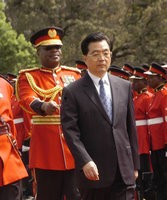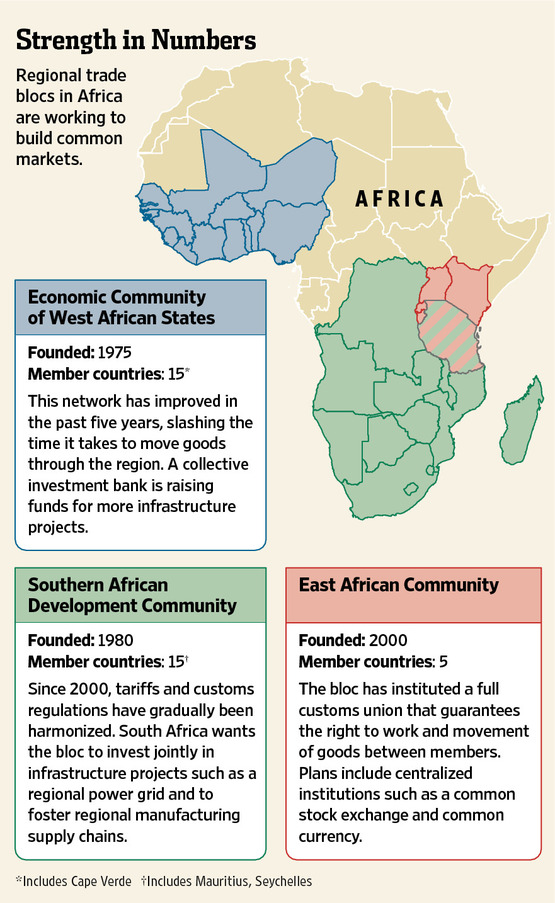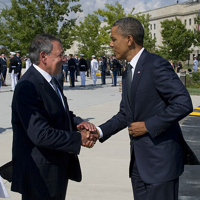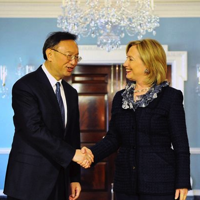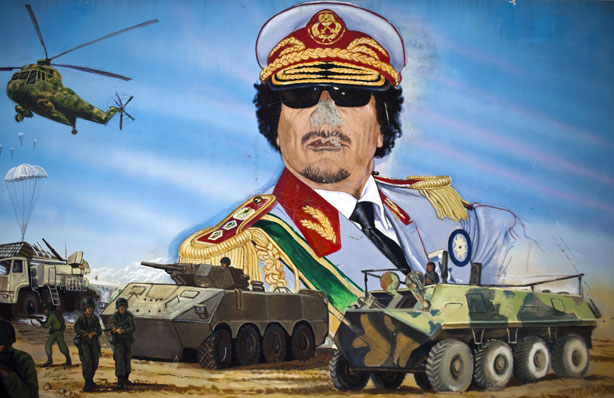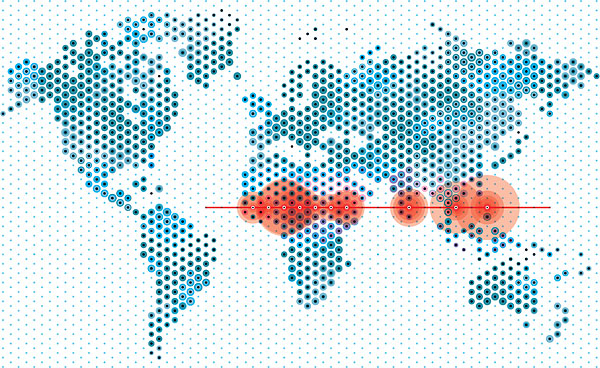 Trio of articles worth differentiating in their meaning. First via Chris Ridlon and other pair from WPR's Media Roundup today.
Trio of articles worth differentiating in their meaning. First via Chris Ridlon and other pair from WPR's Media Roundup today.
Underlying question is, Which states do we care about in the Gap?
Some argue that failed states are THE threat. The Patrick piece is clear enough on the record and it's right out of PNM: Yes, at any one time there are several dozen failed states, but, on average, only about a half-dozen fall into the transnational terrorism pool. Why? Only so many in the al-Qaeda network worth mentioning.
The same dynamic was true in the 1990s, or what I cited in PNM: Usually about three-dozen failures out there, and, on average, the US gets involved in some short-to-medium duration intervention in about a half-dozen each year, mostly on humanitarian grounds.
Why tend to these states? They are the crack house on the inner-city block: they bring everybody down to their level on trust, criminality, bad investment climate, and the like. Regions hook up to the Core in clumps, not individually. A critical mass of improvement is needed in a region, and failed states prevent that critical mass. They do, therefore, create conditions that encourage backwardness, disconnectedness, corrupt, smuggling, and civil strife. These are where AQ do their real business. Yes, we are concerned about their ability to strike inside the Core, but these are episodes and nothing more. There is no real struggle to be had there, just good police work. The real struggles are in the Gap. And so we deal with failed states when they get above the crap-line, otherwise we mostly ignore and hope they eventually present something the Chinese want so they'll come in and rehab the place a bit, like they did in Sudan. I know, I know. China in Sudan is evil, except Sudan is much better now and the only big delta in experience is Chinese investment and purchasing of oil. And China has gone along with the divorce - a very good precedent.
Patrick is also right that AQ prefers up-and-comers, or states with just enough connectivity and technology and corruption to give them access to the Core. Pakistan is perfect in this regard, much better than Afghanistan (my column Monday). Under the right conditions, we need to worry far more about Pakistan than Afghanistan, which is a solution for locals.
But as the Yemen article shows, a certain amount of strife is necessary for a semi-connected state (Yemen is valuable for its close location in the Persian peninsula) to be truly useful. If the state comes together and gets itself a decent government, then the Core security aid will flow and AQ will have its moments but no great advantage.
Better, as the third article suggests, to work a true civil war, where, in the heat of battle, sides get less picky about their allies.
It's been my argument for a while now (meaning about a decade), that AQ is doomed in the Middle East due to demographics - or the middle-aging of the youth bulge. That forces revolutionary change and job creation, because the alternative is too scary for the world, especially with the coming nuclearization of the PG. In that overall dynamic, AQ becomes an element but a small player. It needs to go "back in time" a bit, like any revolutionary group that is seeing its moment pass (think Lenin looking at Germany and then recognizing the opportunity in Russia).
As the Middle East middle-ages, AQ goes to either Central Asia or Africa. I say Africa, because in Central Asia, there are too many great powers willing to kill and repress to keep it out (actually, all of them). In reality, that was the dynamic that led to the creation of the Shanghai Cooperation Organisation.
Africa, by way of contrast, is a looser and easier place to infiltrate. Fortunately, for us, most of the Islam there is relatively mellow and not easily whipped into AQ shape, and yet, AQ must try, because here is the last gasp. What Africa provides is huge churn, a lot of globalization remapping and plenty of opportunities for civil strife - like Libya. Central Asia will be a backwater by comparison.
No, I'm not worried about Africa. Many great things happening there, but with the good comes the bad and the processing must occur along the way. But not any "WWIII" or "perpetual war" or any of that nonsense. It's just what is left over with globalization's continued advance.
 Friday, March 16, 2012 at 10:59AM
Friday, March 16, 2012 at 10:59AM 












